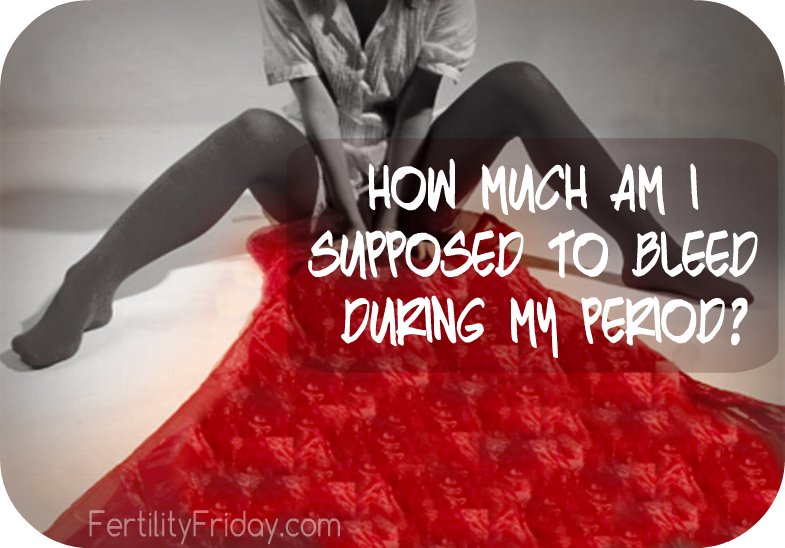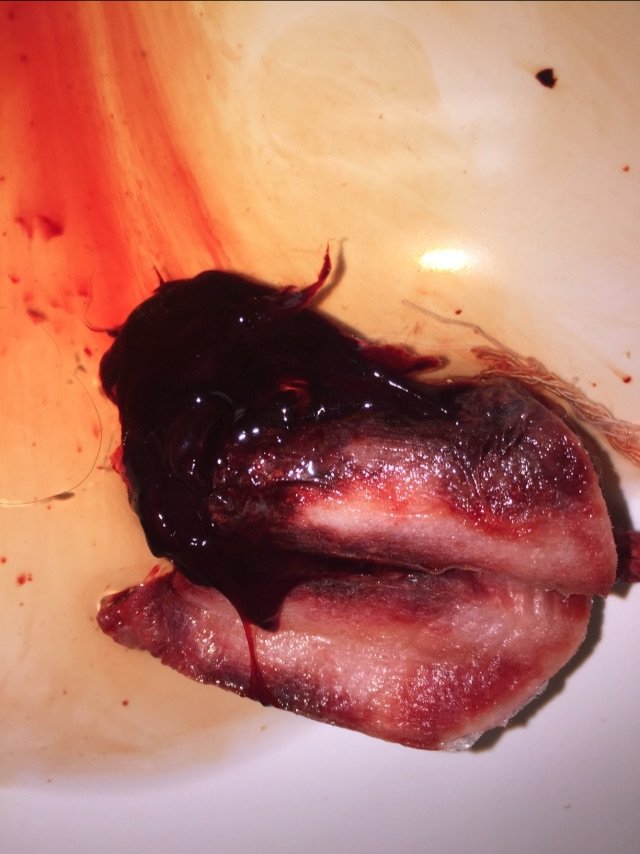How Much Is Too Much
Heavy periods are common for young women. In fact, nearly four in 10 girls experience heavy periods, but only one-third of them seek treatment for it.
A normal menstrual cycle lasts anywhere from three to seven days and occurs every 21 to 35 days. Most women on average lost 30 to 50 milliliters of blood during their period.
Clinically, heavy bleeding means you lose more than 80 milliliters of blood each cycle or your period lasts longer than seven days. But most women cant measure exactly how much blood they are losing each month, which means other criteria for heavy bleeding, also called menorrhagia, is necessary.
Here are signs that your period may be too heavy:
Changing your tampon or pad every two hours or more often
Bleeding lasts more than a week
Experiencing a gush when you stand up or move for three or more days
Feeling extreme fatigue and/or dizziness
Needing a change of clothes to get through the day
Staining bed sheets overnight regularly
Passing blood clots larger than a quarter
Missing out on activities due to heavy period flow
Cancer Malignancy And Hyperplasia
Some women may develop an abnormally thick lining of the inside surface of their uterus. This condition is called endometrial hyperplasia and it may cause heavy menstrual bleeding, irregular bleeding or a bloodstained vaginal discharge. In some cases, endometrial hyperplasia may progress to endometrial cancer, a condition that is more common after menopause but can occur in younger women.
Women are at an increased risk of developing endometrial hyperplasia or endometrial cancer if they:
- are over the age of 45 years
- are over 90 kg in weight
- have never had children
- have a family history of endometrial, ovarian or bowel cancer
- have polycystic ovarian syndrome
- carry a gene that increases their cancer risk .
What Should I Do About It
To treat HMB, you and your healthcare provider need to determine its cause orcauses. This can be done by a few simple tests including a blood test, atransvaginal ultrasound and/or taking a sample tissue from the uterine lining.
-
Polyps: Surgical removal of the polyp is the most effective therapy.
-
Adenomyosis: Treatment with hormonal contraception, especially anintrauterine device that releases a hormone called progestin.
-
Fibroids: Some medical or hormonal therapies are effective, althoughprocedures involving surgery are often necessary.
-
Cancer or pre-cancer: Most pre-cancers can be treated with medication, butcancers usually require surgery.
-
Blood clotting disorder: Tranexamic acid or hormonal medications are theusual treatment strategy.
-
Ovulatory disorders: Ovulatory disorders can generally be treated withhormonal medication such as progestins or other hormonal contraceptivemedications.
-
Endometrial disorders: People with endometrial disorders can respond well totranexamic acid, use of simple NSAIDs like ibuprofen, naproxen or mefenamicacid, the progestin-releasing intrauterine system or other types of hormonalcontraception. When a copper intrauterine device is the cause, some of thetreatments for endometrial disorders can be effective.
-
Iron deficiency: Whenever there is an iron deficiency, and especially ifthere is anemia, an iron replacement should be part of the treatment.
Recommended Reading: New Hire 90 Day-probationary Period Template
What Does Big Blood Clots In Period Mean
Blood clots in period may not always be a problem, especially during the first days of menstruation. However, big clots in period is abnormal. During normal period, blood loss is less than 80mls. If you have prolonged periods with big blood clots then you should see your doctor immediately.
Possible causes are
Recommended Reading: What Should You Eat On Your Period
Cancers Of The Reproductive System

In most cases, bleeding between periods is not a cause for concern. However, vaginal bleeding between periods is one possible symptom of certain types of cancer. It is especially important to take note of abnormal vaginal bleeding if you have entered menopause.
The following cancers may cause irregular vaginal bleeding:
You May Like:Using Birth Control To Stop Period Once It Starts
You May Like: Can You Donate Plasma On Your Period
Not Sure What To Do Next
If you are still concerned about your heavy periods, check your symptoms with healthdirects online Symptom Checker to get advice on when to seek medical attention.
The Symptom Checker guides you to the next appropriate healthcare steps, whether its self care, talking to a health professional, going to a hospital or calling triple zero .
Why Am I Bleeding Not On My Period
Vaginal bleeding between periods is not usually a cause for concern. If the blood flow is light, it is called spotting. Bleeding between periods can have a range of causes, including hormonal changes, injury, or an underlying health condition.
Also Check: 90 Day Probationary Period Letter
Can Abnormal Uterine Bleeding Be Prevented Or Avoided
If your abnormal uterine bleeding is caused by hormonal changes, you will not be able to prevent it. But if your hormonal changes are caused by being overweight, losing weight could help. Your weight affects your hormone production. Maintaining a healthy weight can help prevent abnormal uterine bleeding.
Key Points About Heavy Period Bleeding
You May Like: 90 Day Employment Probationary Period Template
How Do You Know If You Have Heavy Menstrual Bleeding
Heavy menstrual bleeding interferes with your quality of life. Many people with heavy periods assume that periods are supposed to be inconvenient and uncomfortable. They may have watched people in their families live with heavy periods without seeking care and followed their example. But periods should never cause you to restrict activities or accept inconvenience.
During your period, you should be able to:
- Wear a standard pad or tampon every three to four hours without changing it.
- Wear a single menstrual product without having to double-up at any point.
- Leave your home without having to pack extra bags of pads or clothing changes.
- Live your life as usual, without missing work, avoiding going out in public, or skipping activities you enjoy.
If your periods are disrupting your life, it’s time to see your provider.
Why Do I Have Period For 2 Weeks
A normal period is between 2 days and a week. If your period lasts more than a week, then its abnormal. Also, if you continue to see your periods for two weeks, then it is prolonged. Inform your doctor. Common causes of prolonged bleeding depend on your age. A uterine fibroid is common in young women while endometrial hyperplasia and cancer are common in older women.
Read Also: 90 Day Probationary Period Form
Pelvic Floor Muscle Dysfunction
The pelvic floor is a group of muscles and other tissues that form a sling across the pelvis, which holds together the vagina, uterus, bladder, rectum, and other pelvic organs, according to the NLM. Just like any other part of your body, your pelvic floor can become weak or injured, particularly after pregnancy and childbirth, and cause symptoms such as pelvic pain, lower back pain, and the feeling of pelvic pressure or fullness that are akin to those during your period.
The standout difference from menstruation pain? If you can feel a bulge inside the vagina or, in more extreme cases, you can organs start to push out of the vaginal opening, per the American College of Obstetricians and Gynecologists , then you are probably dealing with pelvic floor muscular problems.
Other symptoms include pain during sex, burning feeling in the vagina and while peeing, leaking urine when you cough, laugh, or exercise, and leaking stool or hard time making it to the bathroom in time. To determine whats going on, ACOG says that your health care provide will typically conduct vaginal and rectal exams in which you may be asked to cough or strain to see if you leak.
Read Also: How To Tell If Your Period Is Over
What Are The Symptoms Of Menorrhagia

If you have to change your pad or tampon every 1 to 2 hours because it is soaked, or bleed longer than 7 days, see your doctor. Spotting or bleeding between periods is also a sign of a problem.
The symptoms of menorrhagia may look like other conditions or medical problems. Always consult your healthcare provider for a diagnosis.
You May Like: 90 Day Probationary Period Policy Examples
How Long Should You Use Progesterone
If you are getting close to actual menopause, you might be concerned that if you used hormones such as progesterone that it will prolong perimenopause or interfere with actual menopause. However, this is not the case. Women can safely use low levels of progesterone to manage symptoms without promoting monthly cycles.
Dont Miss: How To Get Period Stains Out Of Underwear
Abnormal Menstrual Bleeding Heavy And Clots
In this month of April I had a period that began on April 6th with semi heavy bleeding, and ended April 14th. April 29th I began a second period with heavy bleeding, and now Im also having blood clots ranging from the size as small as a dime to as big a half dollar coin. What could be the cause of this abnormal menstrual bleeding?
Recommended Reading: Can I Take Plan B On My Period
Don’t Miss: 90 Day Probationary Period Template
What Causes Heavy Periods And Abnormal Bleeding
In girls, pregnancy and dysfunctional uterine bleeding are likely to cause abnormal bleeding.
As the age increases, you should also think about IUCD , fibroids, endometriosis, adenomyosis, pelvic infection, polyps, hypothyroidism.
In perimenopausal women, consider endometrial carcinoma. General bleeding problems such as von Willebrand’s disease may be the cause as well.
It is an abnormal thing if you have to use 2 or more pads within two 2 hours.
Heavy bleeding can also be related to the following issues:
Dysfunctional uterine bleeding . This is a heavy and/or irregular bleeding in the absence of recognizable pelvic pathology. It is associated with anovulatory menstrual cycles. Anovulation is a medical term for the situation when the ovaries do not release an oocyte during a menstrual cycle. Therefore, ovulation does not take place.
Complications in pregnancy. Heavy periods can be due to a miscarriage and it can also be as a result of an abnormal location of the placenta .
When Its Time To See A Doctor
You know your body best, so if you feel like youre bleeding too much, you probably are. If youre concerned that your period is too heavy or if its interfering with your daily life, it may be time to see your doctor.
Your doctor will ask you about your menstrual cycle, heavy bleeding and other symptoms you are experiencing. They will ask about your family medical history, and they may run bloodwork and check iron levels, a sign of anemia and blood loss.
For the first few years of your period, there may be months where you dont ovulate, called anovulatory cycles. This is normal but can cause some inconsistencies with your uterine lining and may lead to heavy or irregular bleeding.
Sometimes, a heavy period can be an indicator of a more serious problem. Common conditions that can cause heavy menstrual bleeding include:
· Hormonal disorders. Hypothyroidism and other hormonal disorders can cause heavy bleeding both during your period and bleeding before or after your period, called breakthrough bleeding.
· Fibroids. Noncancerous growths that develop along the lining of the uterus and can cause heavy, painful periods.
· Von Willebrand disease. A hereditary blood disorder caused by either not having enough Von Willebrand factor a protein that helps form blood clots to stop bleeding or having VWF that does not work as it should. As many as 20 percent of adolescents with heavy periods may have this disorder.
Also Check: Primosiston To Stop Period
Am I Pregnant : : Unprotected Intercourse
So for the last year or so ive been on the depo provera birth control. I have not gotten my last injection due on the 16th of march. And was very lightly bleeding for about a week during that time for the next shot then it stopped for a few days and then started bleeding heavy for the next five days. Finally stopped on april 3. Keep in mind My periods have never been normal. I had unprotected sex on the 8th and 12th and now am lightly spotting. Can i be pregnant?
When To See Your Doctor
If bleeding is so heavy that you must replace a pad or tampon every hour, talk with your doctor.
Likewise, if your period prevents you from doing normal activities because of pain, cramping, and heavy bleeding, its time to see your doctor.
During a visit, your doctor may:
- conduct a physical exam
- request your health history
- request that your symptoms be recorded
They may also order a biopsy or imaging tests to look more closely at your uterus.
Its difficult to know if your period is considered normal or heavy without your doctors help. Theyll be your guide in the process of figuring out if an underlying issue is the reason for your heavy periods.
Typical treatments for heavy periods focus on regulating blood flow. Some treatments can also eliminate symptoms such as pain and cramping.
If an underlying condition is causing your heavy bleeding, treating it may eliminate your unusually heavy periods.
Typical treatments for heavy periods include:
You May Like: Usaa Grace Period
A Period Thats Heavy On The First Day
Many women experience heavier bleeding on the first day of a period and lighter bleeding on the last days. A heavy flow that might get in the way of your normal activities is unusual.
Birth control changes
If you recently stopped using hormonal birth control, your periods may be very heavy in the first days as your cycle adjusts to the hormone changes.
Medication changes
Like birth control, medications you take may interfere with your cycle and lead to heavy bleeding on the first day of your period.
What Are The Signs And Symptoms Of Heavy Menstrual Bleeding

Signs of heavy menstrual bleeding include:
- Abdominal pain.
- Periods lasting longer than seven days.
- Passing blood clots that are the size of a quarter or bigger. The blood may appear red, pink, brown, or even rust-like.
- Bleeding through 1 or more tampons or pads each hour for more than two consecutive hours.
- Losing more than 80 milliliters of blood during your period instead of what is typical, 35-40 milliliters.
- Anemia symptoms, like feeling exhausted, tired or short of breath.
With anemia, you may also notice signs of a condition called pica. Pica symptoms include hair loss, pale skin, and the urge to eat non-food items . See your provider if have these symptoms.
Read Also: 90 Day Probation Period Template
